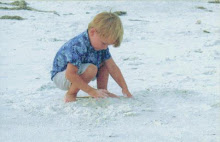An excellent book in a series of books that enlighten on the five love languages. Never heard of them? I hadn’t either. If you haven’t read this book, you’re seriously missing out.
The authors maintain there are five love languages: quality time, words of affirmation, gifts, acts of service, and physical touch. All five languages are important to exhibit to our children and all the loved ones in our lives, yet there is one language that will speak most strongly to an individual. This is the love language that will be most beneficial to exhibit to a child so that they feel loved, and it’s different for every child.
This book is a real eye opener. I recently enrolled my son and I in a class at our community center. It’s something we can do together to spend time just us. I’ve noticed how much he thrives on this time, and it’s changed things about how he acts. He’s always behaved pretty well, but lately, he’s been very helpful around the house. Once I read this book, it dawned on me that his primary love language is quality time. He appreciates nice things I do for him, gifts we give him, and nice words we say. He always politely thanks my husband and I, yet none of those things speak to him as loudly as quality time. This is how he feels most loved.
Conversely, the book discusses the five love languages and discipline. This book contains a great discussion on discipline, which is something many parents confuse as synonymous with punishment. The two are not the same thing, and this book sheds light on how they differ. A unique approach this book takes, however, is in the explanation of how to discipline according to the love languages. In my son’s case, for instance, since his love language is quality time, he shouldn’t be disciplined by taking time outs alone in his room. This separation does more harm than good because he associates this form of discipline directly with love, and when we use this form of discipline, it speaks to him as if we don’t love him. This was precisely the form of discipline I had been using. I had noticed how much he hated timeouts in his room, yet I thought that was good as if the discipline was working. I see it a different way now.
We’ve applied this information to our marriage as well with some equally good results. My husband has found that my love language is acts of service, so doing things around the house directly equates as love to me. His love language is definitely not acts of service, so he didn’t understand sometimes why a messy house would bother me in the way that it does. Discovering our love languages has helped us be more loving as a family. Sometimes, we know someone loves us, but we don’t always feel as though they love us.
This book gives information on each love language individually and ways to discover your loved ones’ love language. There is also a chapter for single parents and the love languages for married couples. If you enjoy this book, also check out The Five Love Languages of God, The Five Love Languages, and The Five Love Languages of Teenagers. Highly recommend.
About Us

- TheHolisticParent.ORG
- Welcome to The Holistic Parent Book Reviews. We are avid readers of anything parent or health related. There are tons of books out there. Unfortunately, the most excellent books worth reading cannot be found at the local library. It's easy to spend great deals of money on books the library does not carry, only to be disappointed when the book comes and was not what you were expecting. We hope that by giving our opinions on various books we read, it will help others to decide whether a book is worth the time or money. Our blog is run in conjunction with our website www.theholisticparent.org, and much of our information on our website is also supported by books we review here. Happy Reading!
Monday, September 27, 2010
The Five Love Languages of Children by Gary Chapman and Ross Campbell, M.D.
Subscribe to:
Post Comments (Atom)













No comments:
Post a Comment